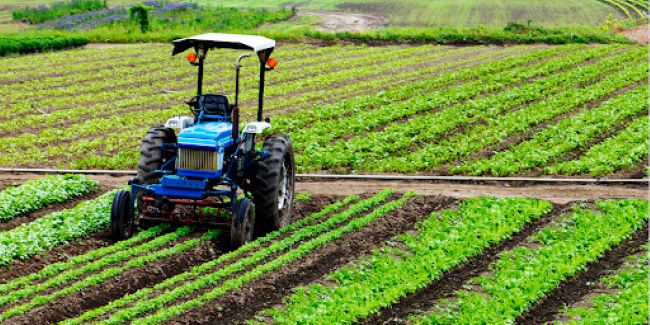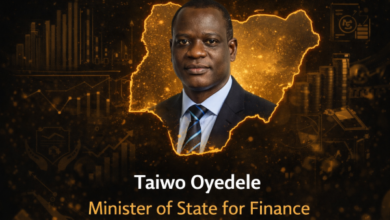Food security: NSE mulls rescue with mechanised farming across Nigeria
 The Nigerian Society of Engineers (NSE) says it plans to establish Demonstration Farms and Engineering villages across the six geo-political zones of the country to achieve food security.
The Nigerian Society of Engineers (NSE) says it plans to establish Demonstration Farms and Engineering villages across the six geo-political zones of the country to achieve food security.
Mrs Margaret Oguntala, president/Chairman-in-Council of the NSE, said this in a statement on Monday in Lagos.
Oguntala was quoted in the statement to have said this at the NSE Manchester Branch, Northern Power Stakeholders’ Event and Maiden Ademola Olorunfemi Public Discourse and Dinner, held in Manchester recently.
FG empowers Edo farmers with 18,000 bags of fertilisers
The event with the theme, ”Achieving Food Security in Nigeria with Diaspora Engagement” also featured the induction of new corporate members.
Oguntala, a fellow of the NSE, said this was to enable indigenous engineers to apply their expertise in mechanised farming, irrigation systems, and sustainable agricultural practices in the nation.
The NSE president said the hubs would not only centralise cutting-edge equipment for optimal resource use but also serve as innovation incubators, where new agricultural technologies could be developed and tested.
She added that the Society was committed to supporting food security initiatives in the country while soliciting the support of the diaspora branches toward the success of mechanised farming for adequate food production.
Oguntala noted that the topic of discourse was apt, to address the current realities of the nation.
According to her, food security is not merely about the availability of food; it encompasses accessibility, affordability, and the quality of food necessary for a healthy life.
She added that in spite of Nigeria’s rich agricultural heritage, the nation was still faced with numerous challenges, including inefficient farming practices, inadequate infrastructure, climate change impacts, and lately security issues threatening food security.
She noted that the diaspora engineering community possesses vast knowledge, skills, and resources, thus; partnership with them could bridge the gap of Nigeria’s local need.
According to her, the NSE’s strategic agenda includes a robust Agricultural Entrepreneurship Development Programme which has been designed to enhance the agricultural sector’s productivity and innovation.
“By equipping our engineers with entrepreneurial skills, we aim to revolutionise agri-businesses through advanced engineering solutions,” she said.
Oguntala further said that the NSE through its workshops and mentorship programs at its entrepreneurship fairs solicited collaboration between emerging and senior agricultural entrepreneurs.
The president commended the leading role of the Federal Ministry of Agriculture and Food Security and the various initiatives by the state governments, particularly efforts at developing sustainable solutions for the nation’s food system.
She also announced the forthcoming 2024 National Engineering Conference which would hold between Nov. 18 and Nov. 24.
Speaking on the honouree, Olorunfemi who was the 29th President of NSE, said, he initiated a campaign for patronage of made-in-Nigeria products, among other major contributions which improved the corporate image of the society.
Oguntala commended the Chairman, Executive Committee and the entire members of the NSE, Manchester branch, for organising the programme and working to expand NSE network across UK.
The NSE President who led a high-powered delegation from Nigeria visited the Energy House 2.0 at the University of Salford, Manchester Metropolitan University Business School to participate in a workshop before taking a tour of its Print City.
The Keynote Speaker, a farmer and CEO Niji Group of companies, Mr Kola Adeniji, spoke on the transformative power of agriculture and technology and shared his firm’s experience of addressing agricultural challenges through local solutions.
The Director-General, Energy Commission of Nigeria, Dr Abdullahi Mustapha, unveiled the National Energy Policy (NEP) document and highlighted the critical role energy plays in addressing the global food crisis, particularly in Nigeria.
Eamonn O’Brien, Leader Bury Council, and Greater Manchester combined authority lead for Technical Education and Skills and Clean Air, emphasised the importance of educating young people with skills to contribute to Manchester’s growth.
Other speakers shared insights on how to intergrate displaced people into the agricultural value chain as well as modern methods for achieving food sufficiently.











